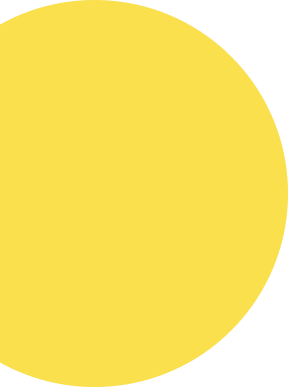

In December 2020, the “Copyright Alternative in Small-Claims Enforcement Act” (CASE Act) was signed into law. It took years of debate in Congress, negotiations between stakeholders, research and reports from the U.S. Copyright Office, and a whole hell of a lot of noise from us and our friends in the creative community, but it finally happened. Instead of heading to federal court to protect your works from copyright infringement with all the attendant costs and inconveniences, there is finally a way to bring a claim quickly and inexpensively. The small-claims tribunal will start hearing cases on June 16, 2022. But it is time to get excited! As a creative, there are things you can do now, like knowing your rights and preparing to bring a claim. We’re here to help.
Did you ever find out that someone was using your song in a YouTube video and that it was being monetized for the uploader and YouTube, with hundreds of thousands of views? Or maybe someone started selling t-shirts with a picture you took, but without your permission? Sure, you can send a takedown notice to YouTube or send a copyright claim to the t-shirt scammer, but until now your only real recourse was to press charges in federal court.
As you can imagine, federal court can be time-consuming and prohibitively expensive, especially for individuals. That’s why the CASE Act established the Copyright Claims Board (CCB) – a small claims court within the U.S. Copyright Office. Its job is to handle copyright disputes in a fair, affordable, and timely manner so that independent creators don’t need to bear the burden of federal court when their works are infringed.


Our friends from The Copyright Alliance made a great flowchart to walk you through the process for resolving a claim. We always count on them for expert technical and legal accuracy. We’re here to translate the 10 steps into terms that capture why you should be fired up about fighting the infringers. Knowing our audience, we’re going to assume that you are an independent creative and that your claims are valid. Consider not using our irreverent tone, but do take heart: you are about to finally be able to easily enforce your creative rights!
1 Contact the people violating your copyright.
Be polite, because they might be willing to correct their, um, “mistake.” Obviously, they should take down the stolen material – and are obligated by U.S. law to do so in a timely manner. They may also owe you some money. If they don’t cooperate, then proceed righteously to step 2.
2 Submit your claim to the CCB.
Although the reporting form is not yet available, the U.S. Copyright Office has promised that it will be easy to use. En garde, pirates!
3 Copyright experts from the CCB will review your complaint,
either accepting or declining it, based on whether it fulfills the CASE Act’s requirements. Don’t worry too much if an oversight or honest mistake on your part leads to an initial rejection. The CCB knows you are probably not a lawyer. You will get an opportunity to amend the claim.
4 If the CCB accepts your claim,
let the “Respondent” (AKA incorrigible pirate) know that you will see them in small-claims copyright court. (Cue procedural drama music.) The CCB will contact them, too.
5 The clock starts ticking for the Respondent.
Within 60 days, they must opt out. If they do not opt out within the 60 days, the case will begin at the end of the 60 days. If the Respondent opts out, you can still pursue them in federal court.
6 The CCB then gets to work.
They will want to collect evidence and arrange meetings, but all business will be conducted remotely. No lawyers, no expensive travel fees.
7 The CCB could toss out the case.
It’s unlikely – if you have sufficient evidence. Be certain to keep good documentation.
8 Now, the CCB will decide the case and determine damages,
which could be up to $30,000. Or, the CCB will help you reach a settlement with the pirate.
9 For the first 30 days after the CCB's decision, either you or the pirate can ask them to reconsider.
For 30 days after that, either you or the pirate can appeal directly to the Register of Copyrights.
10 After all is said and done,
in rare instances, the pirate could still appeal to federal district court. If the pirate fails to do what the CCB ordered (e.g., pay up), then you can take them to federal court, where you’ll now be armed with official findings from the U.S. Copyright Office.


Even though several months may pass before the Copyright Claims Board begins to decide cases, there are steps you can take today so that you’re ready to assert your rights in this newly affordable and convenient forum. We’re not lawyers, so we cannot give legal advice. But we can tell you what we would do if we were gearing up to protect our copyrights before the CCB.
First, make a list of your works that have been pirated during the last three years. That’s the amount of time that can pass between infringement and a complaint to the CCB. Next, register your original works with the U.S. Copyright Office. You can only petition the CCB to redress infringement of officially registered works, or ones that are being considered for registration. We don’t like paperwork, either, but you know what we like even less? Piracy of your work. Plus, the online form makes registration quick, easy, and painless. You can apply for registration at the same time that you file a complaint, but why wait? Start catching up to your pirates today.
Finally, save copies of evidence, converting them to electronic format whenever able. If your claim is accepted by the CCB, you’ll need to substantiate it during the proceedings, which will be conducted remotely. Once you have completed these tasks, we hope you can return to what you love: creating. We also hope that you will feel newfound confidence that you can protect your copyrights, even in the digital age.
Still looking for an answer or further guidance on the CASE process? Our friends over at Copyright Alliance have got you covered.
